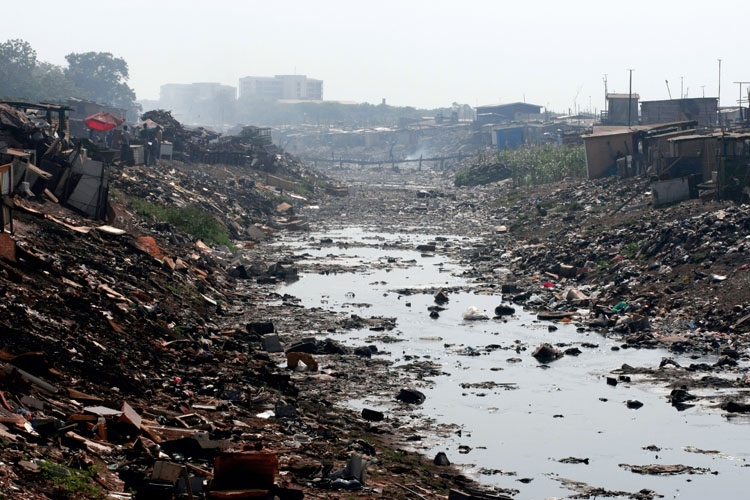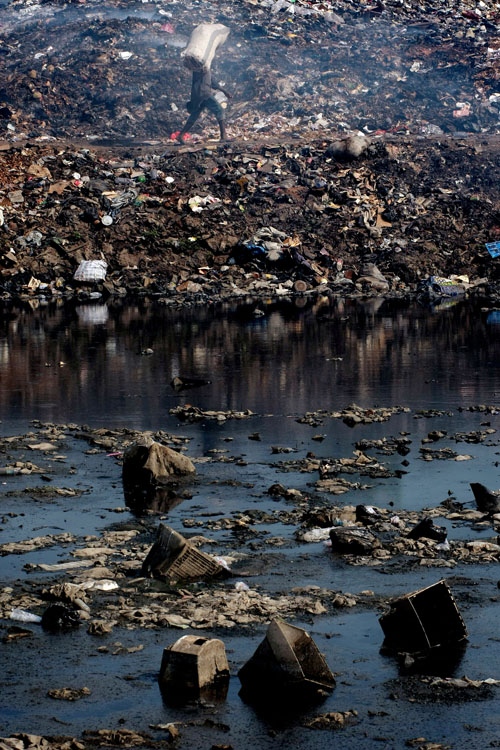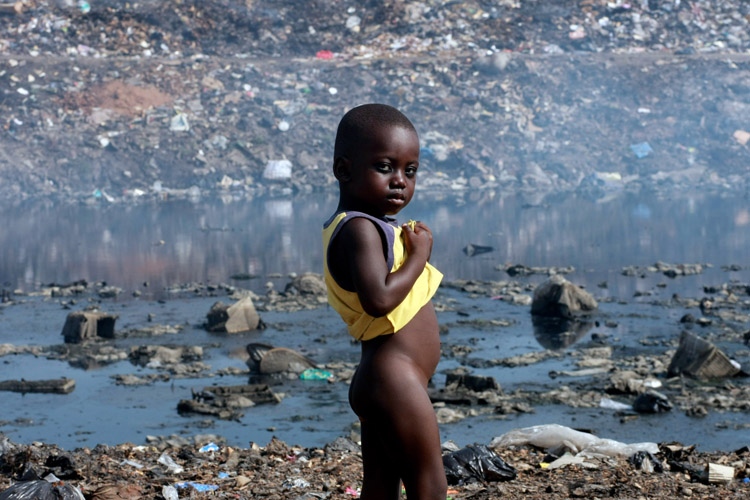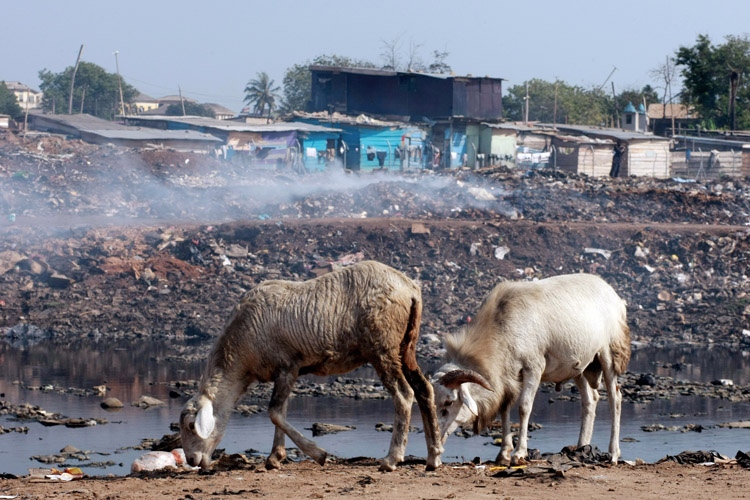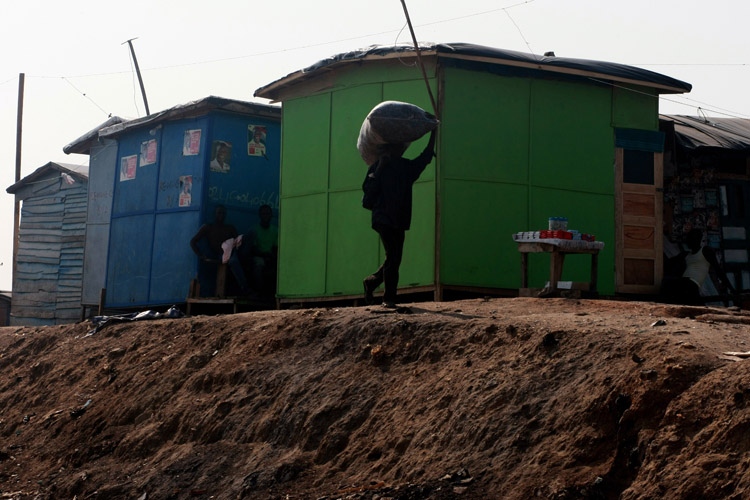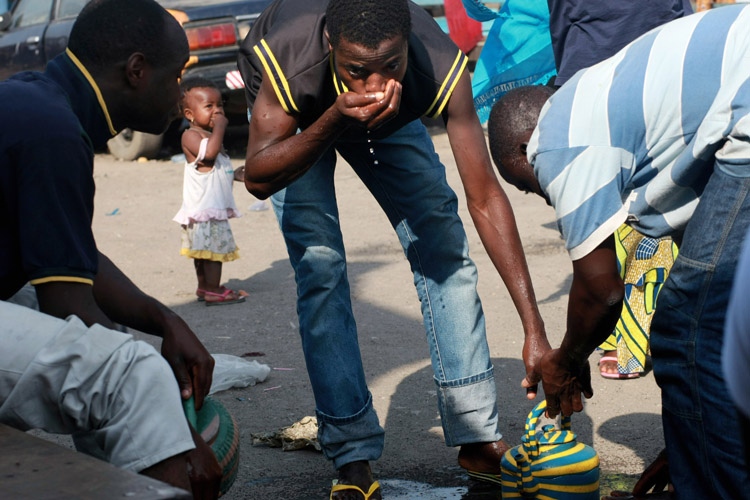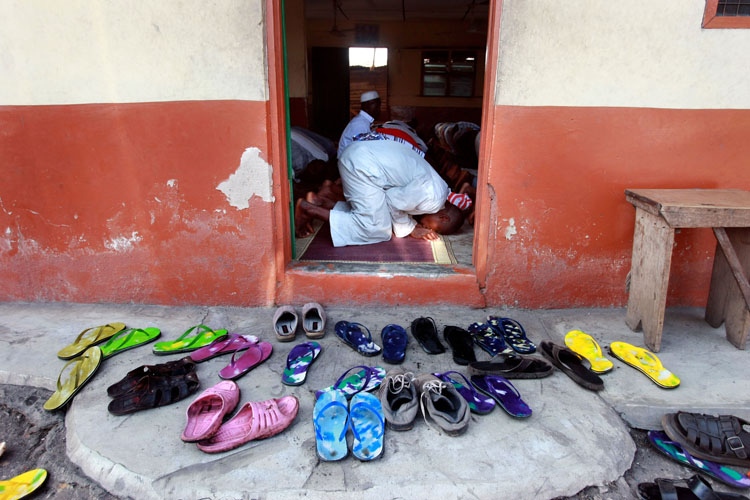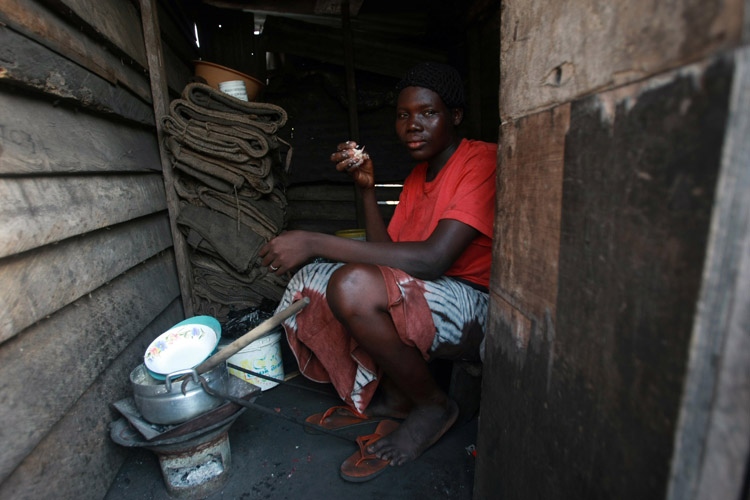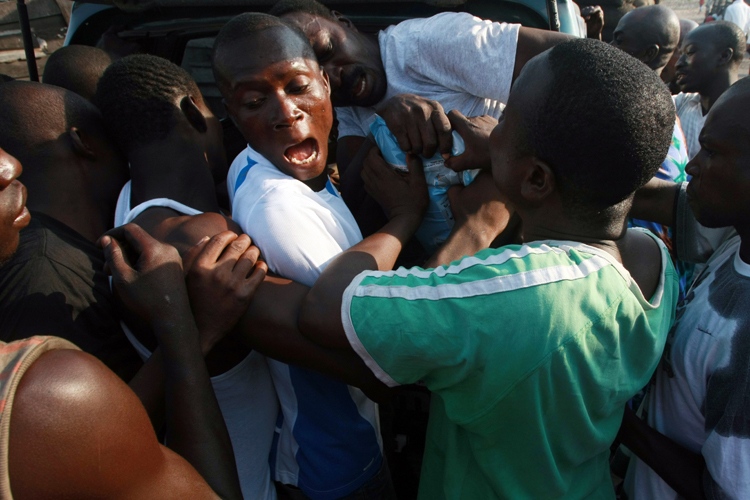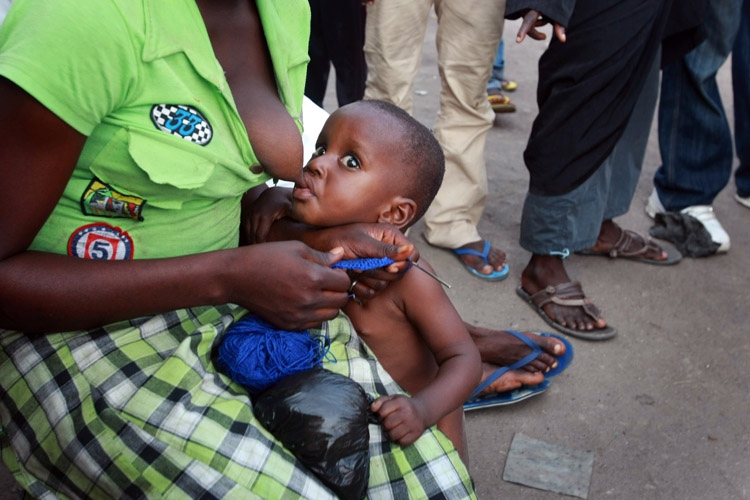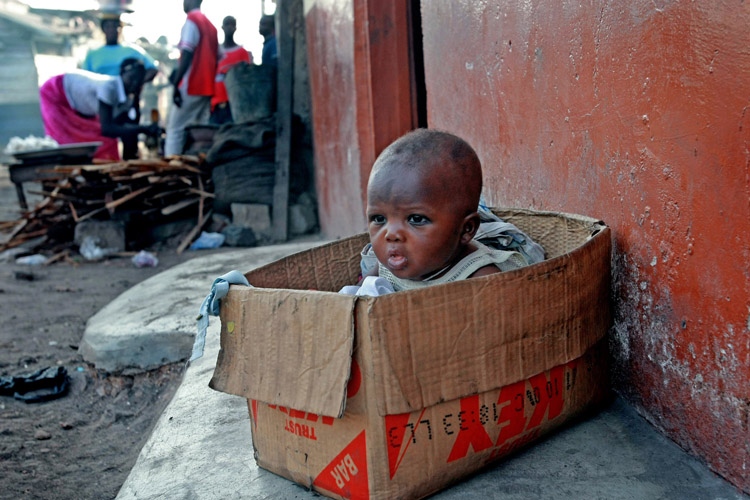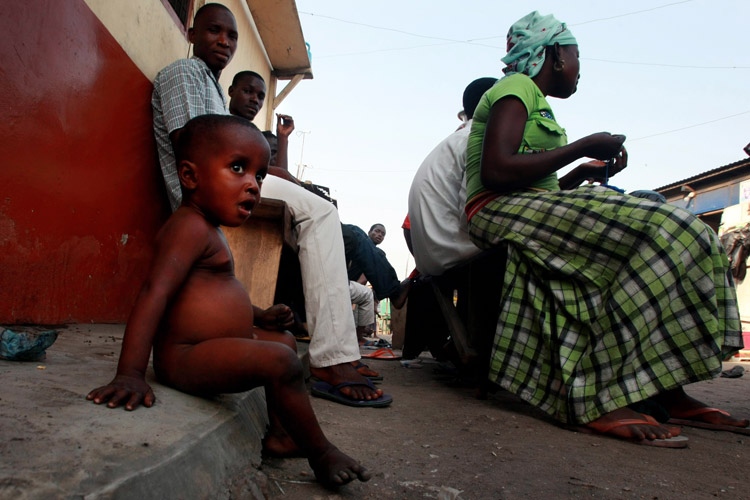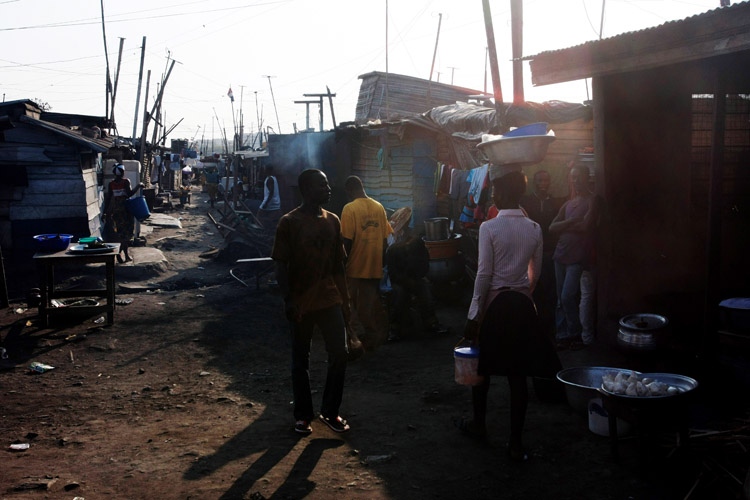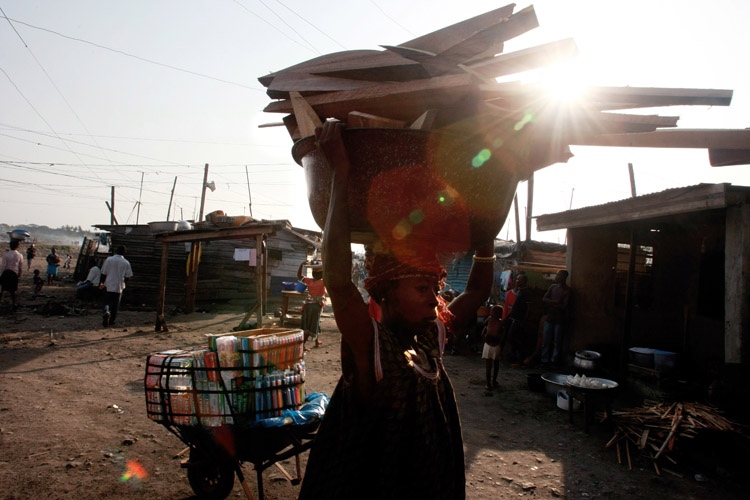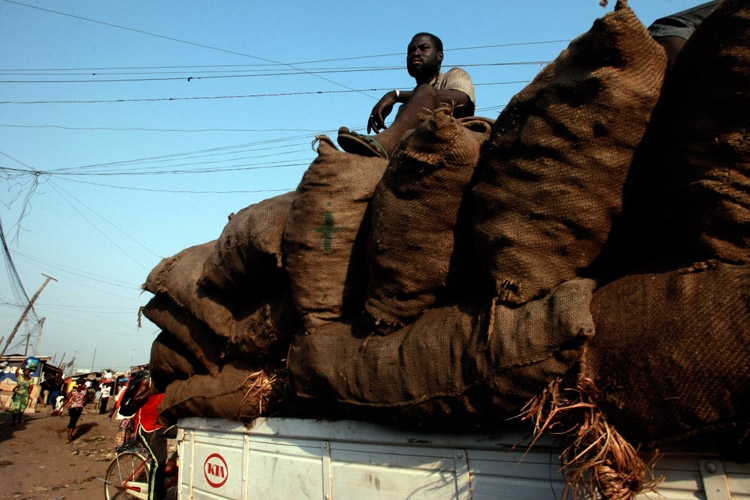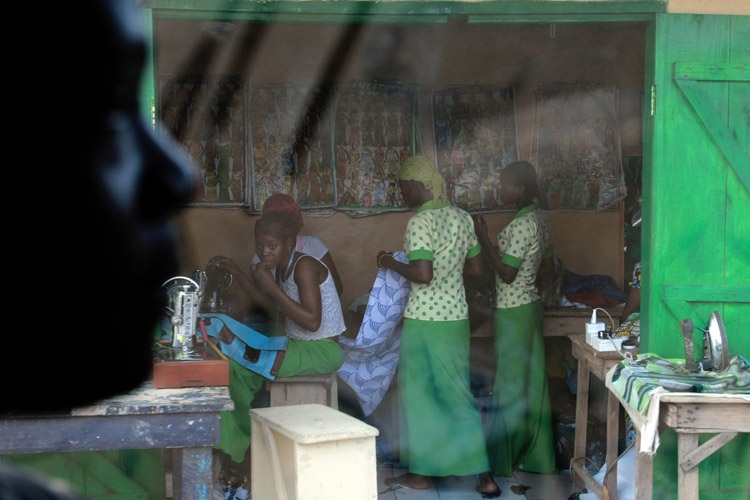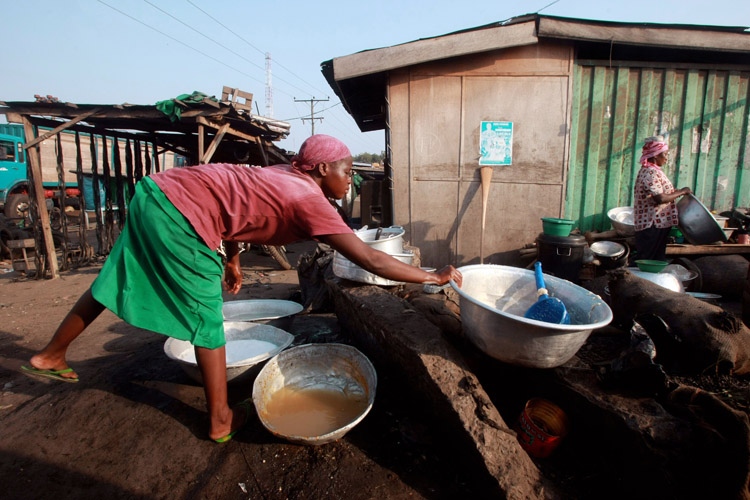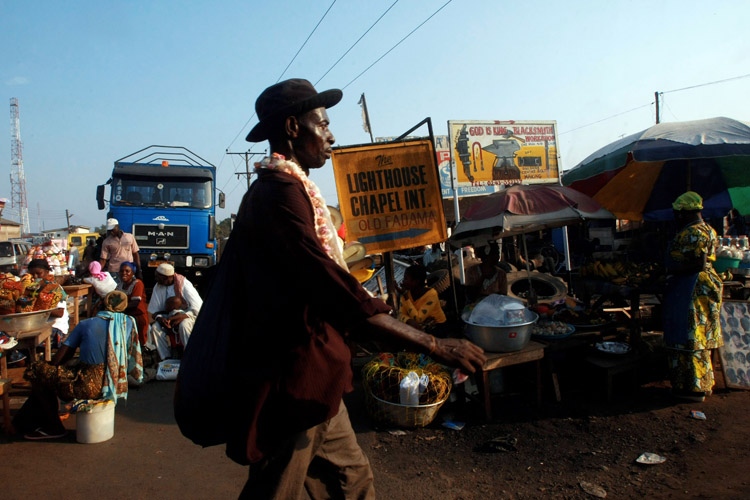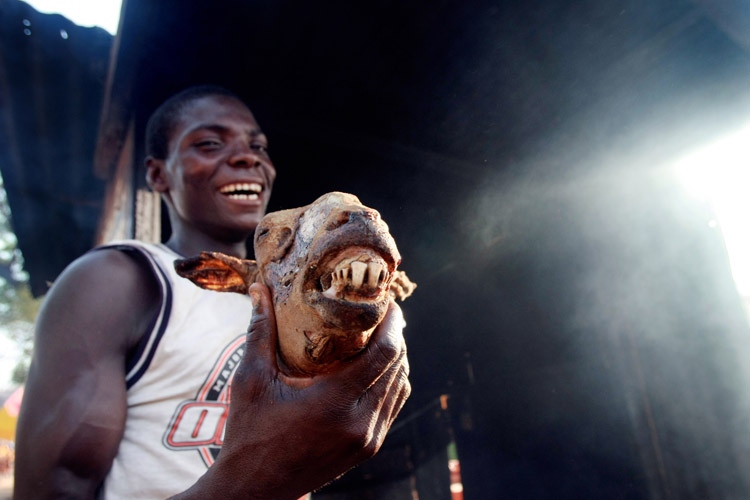Naked children defecating on the banks of a lagoon. Waste plastic flying everywhere. Smoke emerging from the surface of the earth. Garbage everywhere. Wooden shacks silent multiple constant abuse and suffering.
At first glance, this is the scenario that offers visitors Old Fadama, better known as Sodom and Gomorrah.
This is the largest slum in the capital city of Ghana, Accra, home of more than 34,000 people living illegally in a landfill which is listed as one of the most polluted places in the world and for many, is the Mecca of crime and prostitution of African country.
Old Fadama emerged in 1979, formed mostly by workers who migrated from northern Ghana in search of a better life. However on arrival, what they found was a city that offered very little wages and high living costs.
Since then, the community has grown steadily, largely because of two important historical events: the 1983 famine in Ethiopia and then Kokomba-Nanumba conflict in 1994. This resulted in the emigration of thousands of people to the capital of Ghana.
The need for housing and urban poverty undocumented forced to settle on lands used by the government, most of them along the river Odaw, located at the top of the Korle Lagoon. They built huts of wood and zinc, that despite their fragility, are inhabited by large families.
The inhabitants of this community lack basic services such as water, sewer and garbage dumps, resulting in rampant pollution of Korle Lagoon, whose banks are settled. They cook, eat, sleep, defecate and urinate outdoors, right on the lake ribieras, highly unhealthy situation disabling everyday life in the place.
In 1995, the International Center for Development Research, cataloged at Old Fadama "one of the most polluted places on Earth."
The community is heterogeneous in terms of ethnicity. Among the tribes that coexist in the place are the Dagombas, bazaars, and Konkombas Gonjas. Similarly, each professing the religion of their choice, whether Christianity, Islam or Santeria. Therefore, it is not uncommon to witness cultural, ethnic prejudice, power struggles, inequality and marginalization.
His ways are ground, narrow and winding, so that the high population density makes access and increases the impact of fires and floods, which represent a continuing threat to the community.
The incessant rains usually destroy most of the houses, and sometimes take the lives of some residents. A nocturnal rain represents for many standing overnight, waiting for the water level drops as the drainage system is practically nonexistent. To this, we add the constant threat posed by power lines surrounding the huts, which are usually made of wood, zinc, plastic and cardboard.
As the people of this community can not afford electricity, they use candles for light. However, the continuous air gap from the fire causes between 15 and 20 per year.
With the stigma of the perdition
The streets along the settlement reflect a normal market, like any other. Beyond these images, the perception that other communities have of the inhabitants of the so-called Sodom and Gomorrah, is another.
For those who know and do not live there, Old Fadama, and his nickname Somoda and Gomorrah-is a name that weighs on the shoulders of the people of Accra. It is seen as a production area of illegal activity, rapists, murderers and drug addicts. Hence the comparison with cities blíblicas.
Many of its residents sleep with their clothes on because they fear being raped in the middle of the night. The community operates as a city and has its own laws. Ignore any of them is considered treason and could result in the death of one who infringes. Police rarely acts in the place, prefer to focus on less sensitive areas as the staff can not keep up controlling incidents that occur within the "favela".
Also, the number of cholera cases is alarming. The name of this field is always in the list of districts with serious health problems associated with diseases attributable to unsanitary conditions.
Despite the mockery of Accra residents, people who live in the dump is proud of their community and enjoy the life they lead despite their many needs.
"We have a right to exist!"
Since 2002, residents of Old Fadama live under the constant threat of eviction, as the Government claims to be the owner of the land and claims that never gave them any permission for housing. The authorities have issued eviction orders to residents, which have refused to comply because they are not offered alternative housing or land.
The community, in a failed attempt petitioned a court order to prevent local authorities carry out the proposed eviction. As a result, they created the Federation of Urban Poverty in Ghana (GHAFUP, for its acronym in English), supported by the organization People Dialogue Ghana (PDG, in English), to participate and negotiate with local authorities in the hope of preventing evictions.
Three years later, the PDG and GHAFUP managed to establish a formal commitment between the members of the Federation, the government and local authorities. Thus, an agreement was reached to stop the eviction, which marked the beginning of a change for dialogue, participation and partnerships.
These residents "illegal" have become a formidable force in the six regions that divide Ghana, which have between 10-12 groups, which in turn, have about 50-70 members each, and thousands of people in Accra, the capital.
Environment, Politics or discrimination?
According to the Government, the presence of the invaders in Old Fadama hinders the dredging of the lagoon, leading to huge losses to the State for each month the idle dredging equipment in place. Residents say that since they have not been consulted, not participate in the design and implementation of the project.
In 2003, the Accra Metropolitan Assembly (AMA, in English), won a legal battle where he tried to evict the settlers. Since then, the government has been reluctant to use in the exercise of its power to expel them because of strong political implications that brings this type of action. In northern Ghana, from where the majority of people, the government could lose many votes if this delicate situation is not treated properly.
It is possible to interpret this as one of ethnic discrimination, which is founded on the Universal Declaration of Human Rights in its Article 25, which states that "everyone has the right to a standard of living adequate for the health and well and your family, health and wellness, and including food, clothing, housing and medical care and necessary social services ".
Nelson Mandela, former President of South Africa and human rights advocate, once said: "As long as poverty, injustice and inequality persist in the world, none of us can really relax .... Poverty is created by man, therefore, can only be eliminated by human action. "Even today, in the XXI century, as Old Fadama communities continue waiting for governments to recognize their right to exist no matter how precarious their situation may be. His hunger is action, not words.

